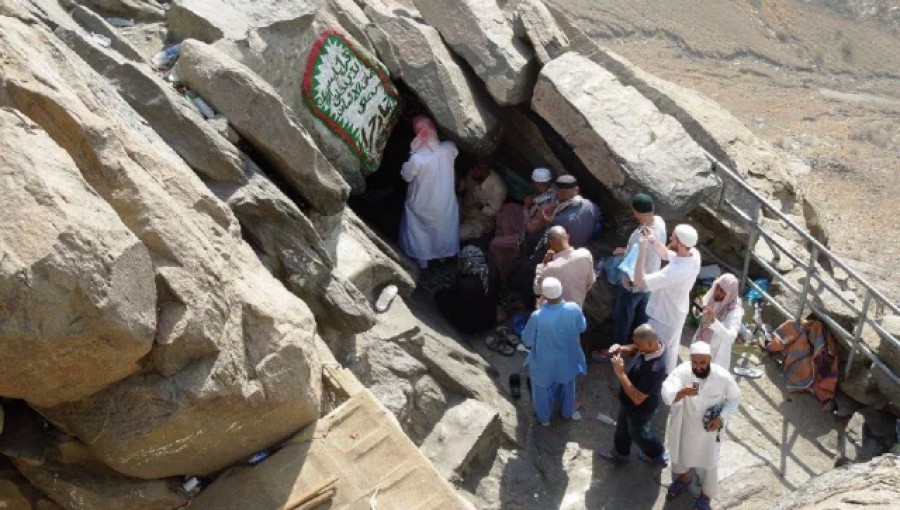Mecca, August 17 — In a significant development aimed at enhancing the pilgrimage experience, Saudi Arabia has announced plans to build a cable car system to facilitate easier access to the historic Hera Cave, where the Prophet Muhammad (PBUH) received the first revelations of the Quran. The project is expected to be operational by 2025.
The Hera Cave, located on Jabal Al Noor (Hill of Light), is a site of immense spiritual significance for Muslims. Situated approximately four kilometers from the Holy Kaaba in Mecca, the cave is perched at an altitude of 634 meters, making the journey to it physically challenging. The new cable car system will provide a safer and more convenient way for pilgrims and visitors to reach the sacred site.
The Saudi government’s plan to introduce the cable car service is part of a broader initiative to develop the area surrounding Hera Cave into a cultural and historical center. This development aligns with the Kingdom’s ongoing efforts to enhance the religious and cultural experiences of millions of pilgrims who visit Saudi Arabia each year.
Currently, accessing the Hera Cave requires a strenuous climb up Jabal Al Noor, which has many steep slopes. The cave itself is small, able to accommodate only five people at a time, but it holds a place of profound importance in Islamic history. The introduction of the cable car system is expected to significantly ease the journey for visitors while preserving the sanctity and historical significance of the site.
Saudi authorities believe that this project will not only improve accessibility but also help in managing the large crowds that visit the site, especially during the Hajj and Umrah seasons. The cable car system is expected to become a vital part of the infrastructure supporting the Kingdom's vision of a more inclusive and accessible pilgrimage experience.
As part of the development plan, the area around the Hera Cave will be transformed into a cultural center that educates visitors on the life of the Prophet Muhammad (PBUH) and the early history of Islam. This initiative reflects Saudi Arabia's commitment to preserving its Islamic heritage while adapting to the needs of modern-day pilgrims.
The Saudi government is keen to complete the project by 2025, ensuring that visitors can enjoy a more comfortable and enriching journey to one of Islam’s most revered sites.





























Comment: